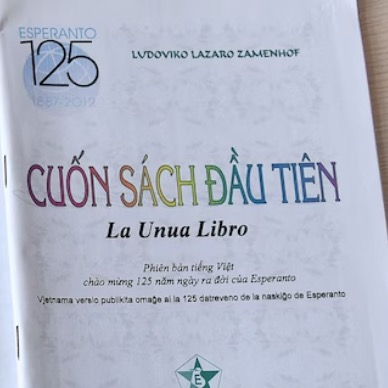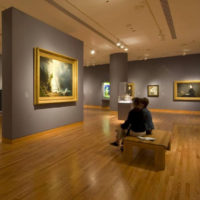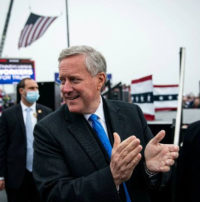AJ Four Ways: Text Only (by date) | headlines only
DANCE
IDEAS
- The Library Of Congress Has Found The Likely First Depiction Of A Robot On Screen

“The 45-second-long, one-reel short Gugusse et l‘Automate – Gugusse and the Automaton – was made nearly 130 years ago. But the subject matter still feels timely.” – NPR
- When The Reviewer Isn’t Sure If The Play Is Great Or Terrible

“There is a way to describe this show that will make it seem, at worst, exactly like every cliché of venturing into Brooklyn to see a one man play/spoken word poem/performance piece in a small black box off the L or G train.” – Culturebot
- Millions Of People Are Hooked On ‘Microdramas,’ With Episodes That Last About One Minute

On a K-microdrama set, “filming was moving at breakneck speed. Everything was shot in vertical mode, and nothing was subtle.” – BBC
- How The BAFTAs And The BBC Absolutely Bungled Their Response To A Racist Slur
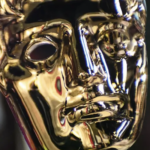
“Black people and people with Tourette’s have been grappling with the ugly language and the fallout from a night that was supposed to be a celebration.” – The New York Times
- The Los Angeles Olympics Logo Needs To Settle Itself Down
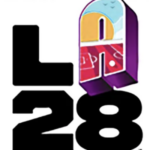
“If you’re going through all the trouble to create what I assume will be hundreds of logos by the time the games roll around, why would you not brand LA28 using ‘LA’ as a customized emblem? Why is it only the ‘A’ that changes out?” The answer may surprise you. – Torched LA
ISSUES
- The Los Angeles Olympics Logo Needs To Settle Itself Down

“If you’re going through all the trouble to create what I assume will be hundreds of logos by the time the games roll around, why would you not brand LA28 using ‘LA’ as a customized emblem? Why is it only the ‘A’ that changes out?” The answer may surprise you. – Torched LA
- The Snow Sculptures Of New York’s Latest Storm

“Collaboration was key. What came first? The snow baby sitting on the bench or the lounging mermaid beside him? Did the same person who built the snow pyramid also build the snow sphinx?” – The New York Times
- And Just Like That, 144 Year After Construction Began, Sagrada Familia’s Central Tower Is Finished

“Construction is expected to continue for a decade or so, but The Guardian called it ‘nevertheless a day full of emotion for a city that has lived with Gaudí’s unfinished work for generations.’” – ART News
- Cambodia Gets Back Dozens Historic Artifacts Allegedly Looted In British Art Dealer’s Scheme
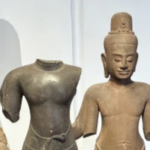
“The artifacts were described as dating from the pre-Angkorian period through the height of the Angkor Empire, including ‘monumental sandstone sculptures, refined bronze works, and significant ritual objects.”’ – Yahoo (AP)
- The Kentucky Optical Shop Owner Who Was Also One Of The Twentieth Century’s Best, Strangest Photographers

“Often dark (literally and figuratively), surreal, sometimes playful and at other times sinister, his pictures stunned and sometimes perplexed viewers with their wild, poetic strangeness.” – Undermain Arts
MEDIA
- How The BAFTAs And The BBC Absolutely Bungled Their Response To A Racist Slur
“Black people and people with Tourette’s have been grappling with the ugly language and the fallout from a night that was supposed to be a celebration.” – The New York Times
- A Dystopian Story About An AI-Ridden 2028 Sparked A $200 Billion Crash Of The Stock Market This Week
A speculative blog post about 2028’s AI-choked economy just vaporized $200 billion in market value. When your dystopian fiction gets confused for a Goldman Sachs report, you’ve either written brilliantly or traders need better reading comprehension. — Literary Hub
- France’s Controversial Culture Minister Steps Down To Run For Mayor Of Paris
Rachida Dati, a member of ex-President Sarkozy’s right-wing party Les Républicains (she was once his Justice Minister), is running to succeed outgoing mayor Anne Hidalgo. The new Culture Minister is Catherine Pégard, another former Sarkozy aide who was President Macron’s chief cultural advisor and president of the Palace of Versailles. – Deadline
- Study: Gen Z’s View Of Masculinity Is Changing
The study surveyed 1,500 tweens, teens and young adults, ages 10-24, finding that these groups want to see boys and men on TV and in movies “moving away from isolation and other masculine stereotypes” and “towards vulnerability and connection.” – The Hollywood Reporter
- Nova Scotia’s Arts Sector Hit Hard By “Unprecedented” Provincial Budget Cuts
“Nearly half of all Nova Scotia Museum sites closed. The elimination of a fund supporting local publishers. A 100% cut to funding for programs that put writers and artists in schools. Nova Scotia’s arts and culture sector was hit hard by cuts announced (late) yesterday by the provincial government.” – Halifax Examiner
MUSIC
- Firefighters Rescue Rare Books From A Library On The Cliff Edge After Landslide
“Firefighters drilled through the wall of a building behind the structure and entering for minutes at a time, strapped the bookcases together and hauled them backwards to reach the books.” – The Guardian (UK)
- Ode To A Great Editor
During my own editing stint, I came to understand writers as prisoners of their own minds, pressed up against the bars of the words they have already committed to the page. Writers suffer from a cognitive impairment that limits their ability to see flaws in their prose. – The Atlantic
- Congressional Republicans Propose National Book Banning
House Resolution 7661 transforms grassroots library battles into national policy, giving censors sweeping powers to purge school and public collections. Democracy’s reading rooms become political battlegrounds as cultural wars scale up. — Literary Hub
- Where Has The Sex Gone? Our Literature Is Getting Cleaner
Literary writers have other demands to satisfy. In general, readers come to their books seeking not an escape from reality but perspective on it. Romance novels can provide this, just as literary novels can have happy endings, but they’re still beholden to the fantasy that’s part of the genre. – The Atlantic
- A Rebirth In Critic-ing?
If the review sections of newspapers are closing down, there’s a sense that this moment could make room for a meatier, weirder kind of criticism. – Columbia Journalism Review
PEOPLE
- The Library Of Congress Has Found The Likely First Depiction Of A Robot On Screen
“The 45-second-long, one-reel short Gugusse et l‘Automate – Gugusse and the Automaton – was made nearly 130 years ago. But the subject matter still feels timely.” – NPR
- When The Reviewer Isn’t Sure If The Play Is Great Or Terrible
“There is a way to describe this show that will make it seem, at worst, exactly like every cliché of venturing into Brooklyn to see a one man play/spoken word poem/performance piece in a small black box off the L or G train.” – Culturebot
- Millions Of People Are Hooked On ‘Microdramas,’ With Episodes That Last About One Minute
On a K-microdrama set, “filming was moving at breakneck speed. Everything was shot in vertical mode, and nothing was subtle.” – BBC
- How The BAFTAs And The BBC Absolutely Bungled Their Response To A Racist Slur
“Black people and people with Tourette’s have been grappling with the ugly language and the fallout from a night that was supposed to be a celebration.” – The New York Times
- The Los Angeles Olympics Logo Needs To Settle Itself Down
“If you’re going through all the trouble to create what I assume will be hundreds of logos by the time the games roll around, why would you not brand LA28 using ‘LA’ as a customized emblem? Why is it only the ‘A’ that changes out?” The answer may surprise you. – Torched LA
PEOPLE
- The Library Of Congress Has Found The Likely First Depiction Of A Robot On Screen
“The 45-second-long, one-reel short Gugusse et l‘Automate – Gugusse and the Automaton – was made nearly 130 years ago. But the subject matter still feels timely.” – NPR
- When The Reviewer Isn’t Sure If The Play Is Great Or Terrible
“There is a way to describe this show that will make it seem, at worst, exactly like every cliché of venturing into Brooklyn to see a one man play/spoken word poem/performance piece in a small black box off the L or G train.” – Culturebot
- Millions Of People Are Hooked On ‘Microdramas,’ With Episodes That Last About One Minute
On a K-microdrama set, “filming was moving at breakneck speed. Everything was shot in vertical mode, and nothing was subtle.” – BBC
- How The BAFTAs And The BBC Absolutely Bungled Their Response To A Racist Slur
“Black people and people with Tourette’s have been grappling with the ugly language and the fallout from a night that was supposed to be a celebration.” – The New York Times
- The Los Angeles Olympics Logo Needs To Settle Itself Down
“If you’re going through all the trouble to create what I assume will be hundreds of logos by the time the games roll around, why would you not brand LA28 using ‘LA’ as a customized emblem? Why is it only the ‘A’ that changes out?” The answer may surprise you. – Torched LA
THEATRE
VISUAL
- “Moral Self-Defense” And The Uses of Public Shaming
“There are plenty of self-serving, self-aggrandizing, morally objectionable reasons for why people participate in public shaming. Nevertheless, the concept of moral self-defence reminds us that our self-respect, our social identities, and our status in our communities are vital.” – Psyche
- The Qualities Of Ethics Required For Good Government
In a world increasingly defined by distance, between citizen and state, between policy and experience, between law and justice, Rammohun Roy offers a reminder that good government is not only a matter of laws or statistics. It is a matter of presence. – Aeon
- Just What/Where Is The Leisure Class?
We need to work, because survival demands it, and we need to rest, because work is tiring, but are those two possibilities really exhaustive? – Liberties Journal
- How Instrumentalization Devalues The Meaning Of Art
It is no longer enough for universities to say that their programmes allow you to explore some of the most fundamental questions of existence. Now the questions are of a decidedly more bottom-line sort: how will philosophy help you buy a house or build your pension pot? – Aeon
- How To Declutter Your Attention
The aim is cognitive clarity via fewer inputs, distilled choices, and settings centred around presence and focus. While design minimalism emphasizes appearance and object count, psychological minimalism directs attention and reduces cognitive friction. – Psyche















